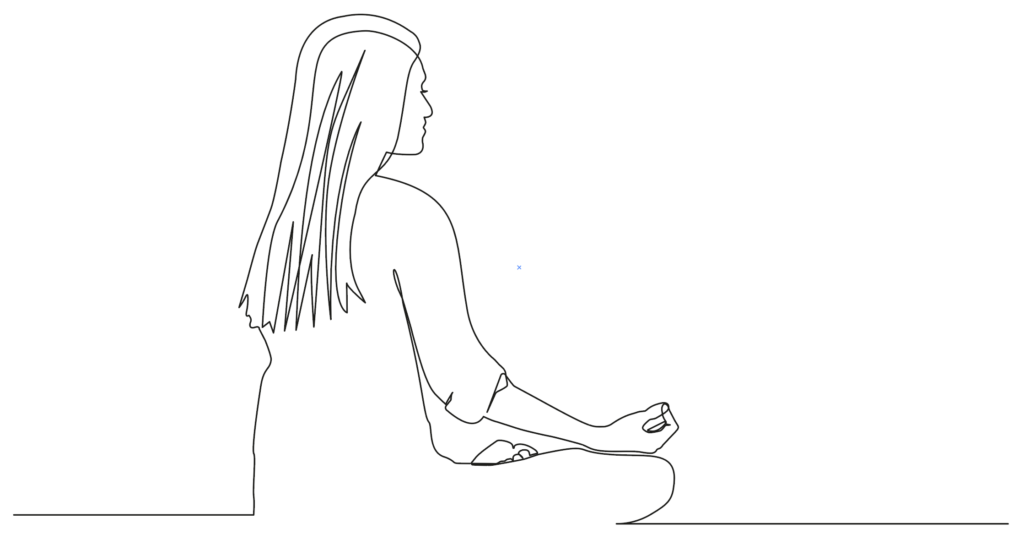
In many ways, our culture has fostered an unhealthy relationship with time spent alone. Even the words that we use to describe alone time are often steeped in some kind of negative connotation. Solitude. Seclusion. Withdrawal. Loneliness.
Loneliness is especially telling: the etymology of the word is simply in the act of being alone, but the modern meaning and most common definitions refer to it as an unpleasant emotional state in which you desire the company of others, but for one reason or another can’t satisfy that desire. When we’re thinking of things that we want to do next Friday night, being “lonely” rarely finds its way to the top of the list.
Fortunately, our relationship to loneliness is changing, and many of these terms and notions are being gradually replaced (or at least supplemented) with ideas that aren’t as negative: me-time, down-time, self-care, treating yourself, and decompressing. As our technology and culture have pushed us to be constantly connected to other people (along with their opinions and demands), we’ve seen an increase in research and general attention to the benefits that spending time alone can offer us.
Let’s take a moment to define what we mean by being “alone.” At its root, being alone is spending time by yourself, without interacting with other people. So, if you’re talking on the phone with someone, chatting online, or reading & responding to social media, we shouldn’t really call that “alone time.”
Another way to think of being alone is spending time with your own thoughts. Even watching a show or a movie is perhaps not truly “alone time.” There are a fair amount of studies that back this up, showing that when we’re watching media, especially serial TV shows, we overestimate how many relationships we have – our simple human brains have a hard time distinguishing between spending time with two-dimensional actors and three-dimensional friends.

The act of truly being alone – where your own internal monologue isn’t interrupted by the thoughts or actions of others – isn’t all that common for most people in their daily, or even weekly, lives. This is a shame, given the many benefits that often come with carving out at least a little time to be completely by yourself. These include:
- emotional benefits (such as increased contentment, lowered anxiety, and a reduced chance of burnout)
- physical benefits (like more awareness of physical stress and increased energy)
- social benefits (counterintuitively, studies show that spending more time alone allows us to be more attentive to those around us, more enjoyable & engaging, and even better romantic partners)
- hair growth benefits (well… maybe not… but when you’re alone, who cares about your hair anyway?)
These benefits of alone time parallel those that modern research is finding from meditation & mindfulness, as well as floating (which is, of course, one of our favorite ways to spend alone time). Not only is the mental stress from socializing removed during a float, the actual physical stresses of the world are lifted as well. The cognitive load from observing your environment, regulating your temperature, and even just constantly holding yourself up against gravity is freed up in a float tank.
This reduced cognitive load, combined with an extremely comfortable and relaxing environment, allows your brain to spend time reflecting, processing, and assessing pretty much everything – from past events & future obligations, to relationships, to muscle tension, to coiffures. Although there are many benefits of actively engaging your thoughts, there is definitely something to be said for making the transition from engaging, to observing, and finally to letting go of your internal monologue completely.
If you’ve practiced meditation (of almost any form), you’ll certainly recognize this process. Likewise, if you’ve spent any amount of time in a float tank, this will no doubt all sound very familiar. Just as our bodies need both exercise and rest, our minds need time for directed reflection as well as time to disengage and not think about anything at all. It’s an easy concept to grasp, but, just like going to the gym, it’s also easy to push aside when the demands of daily life rear their heads.
Just as the terminology around loneliness is evolving, it would be excellent to see progress in the overall relationship we have with being alone. Next time you feel overwhelmed with everything you have to get done, you should consider giving yourself a time out (for at least 15 minutes) to let your mind relax for a moment. Next time you find yourself messaging on social media, think about writing down some notes on paper to yourself instead. Next time you have some free time and you’re thinking about what you’d like to do with it, you should perhaps consider doing nothing at all.
